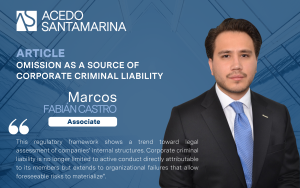On June 30, 2025, the Chamber of Deputies approved the Draft Decree amending, adding, and repealing various provisions of the Federal Economic Competition Law (the “LFCE”), which had previously been approved by the Senate on June 28 and referred to the Chamber of Deputies for review (the “Amendment”). Although the Amendment must still be enacted by the Executive in order to enter into force, the following changes to the current LFCE are anticipated.
The main structural change introduced by the Amendment is the dissolution of the Federal Economic Competition Commission (“COFECE”) as an autonomous constitutional body, and the creation of the National Antitrust Commission (“CNA”) as the new authority on competition matters. The CNA will be a decentralized public agency attached to the Ministry of Economy. It will be composed of five Commissioners, including the Chairperson, all of whom will be appointed directly by the Head of the Executive and ratified by a majority vote of the Senate.
The Amendment also grants the CNA jurisdiction over the telecommunications and broadcasting sectors, areas of authority that have so far belonged to the Federal Telecommunications Institute (“IFT”).
The principal changes to the LFCE include:
- Lower thresholds for notifying concentrations: The monetary thresholds that trigger the obligation to notify concentration transactions are significantly reduced, which will increase the number of transactions requiring prior review and clearance by the CNA.
- Shorter procedural timelines: The timeframes for the authority to resolve key proceedings are shortened. For example, the review period for a concentration is reduced from 60 to 30 business days, and from 40 to 20 business days for exceptionally complex cases.
- Increased sanctions: The fines imposed on economic agents involved in anticompetitive practices are significantly raised, aiming to enhance deterrence.
- Recognition of class actions: The Amendment introduces the possibility for individuals affected by monopolistic practices to bring damage claims, provided that the CNA has previously sanctioned the responsible economic agents.
- Adjustments to the immunity and leniency program: Stricter limits are established regarding the number of parties that may benefit from fine reductions, as well as the maximum percentages of reduction. While cooperation with the authority remains key, it is now subject to more clearly defined parameters.
- Attorney-client privilege: The Amendment expressly recognizes the confidentiality of information provided by external legal counsel (not in an employment relationship with the economic agent) during proceedings before the CNA.
- Certification of compliance programs: The CNA will be empowered to certify compliance programs in competition matters, which may be considered as mitigating factors when determining the amount of sanctions.
Additionally, the transitory provisions of the Amendment provide that it will become effective the day after its publication in the Federal Official Gazette, which is expected to occur in the coming days. Until the CNA’s Plenary is formally constituted, COFECE will remain in operation. Proceedings initiated by COFECE or the IFT in competition matters will continue under the legal framework in effect at the time of their initiation and will be transferred to the administrative units designated by the CNA’s Organic Statute.
Finally, as of the effective date of the Amendment, the procedural timelines of all ongoing investigations conducted by the investigative authorities of COFECE and the IFT will be suspended and will resume the day following the formal integration of the CNA’s Plenary.
Although the publication and entry into force of the Amendment appear imminent, it will be essential to closely monitor subsequent changes to secondary legislation and to ensure that, over time, the dissolution of COFECE as an autonomous body does not become an obstacle to — or cause a weakening of — effective competition and free market participation in Mexico.
At Acedo Santamarina, S.C., we remain at your service to provide legal advice regarding the scope and implications of this Amendment.




